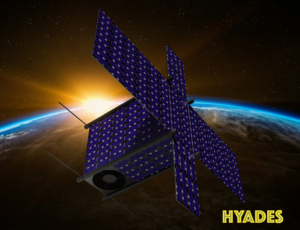The seminars are held at 16:30 via the Webex application (recording, privacy), and are conducted in English.
To receive information about monthly seminars, register here.
Contact:
Maksymilian Szymczak
 Web Content Display
Web Content Display
Web Content Display
Web Content Display
 Web Content Display
Web Content Display
Web Content Display
Web Content Display
The seminars are held at 16:30 via the Webex application (recording, privacy), and are conducted in English.
To receive information about monthly seminars, register here.
Contact:
Maksymilian Szymczak
 Web Content Display
Web Content Display
Web Content Display
Web Content Display

Pursuant to §7 (1) and (3) of Resolution No. 61/X/2022 of the Senate of the Jagiellonian University of 26 October 2022 on the terms and conditions for admission to the Doctoral School of Exact and Natural Sciences at the Jagiellonian University in the academic year 2023/2024, the Director of the Doctoral School of Exact and Natural Sciences announces an additional opening in the Doctoral School (2 positions) within the Astronomy education program, with employment funded through the research project of the European Research Council (ERC) titled “Hydrogen and deuterium survey of minor bodies: transformative science with a purpose-built CubeSat” (101089312 HYADES). The project leader, Dr. Michał Drahus (Institute - Astronomical Observatory, Faculty of Physics, Astronomy, and Applied Computer Science, Jagiellonian University), offers the opportunity to pursue a doctoral degree related to the project’s theme.
Description of the research project:
The advent of standardized small satellites called CubeSats has made astronomical research from space more accessible than ever before. The HYADES project directly derives from the vast research possibilities offered by this platform, and aims at the construction of a miniature UV space telescope designed specifically to detect hydrogen and deuterium around comets and asteroids through the ultra-luminous Lyman alpha transition. Thanks to the unparalleled sensitivity to these atoms, the envisioned satellite will provide definite answers to some of the most profound problems of the near Universe.
First, it will enable ultra-sensitive searches for hydrogen clouds around future interstellar objects passing through the Solar System, with direct implications to our understanding of orbital anomalies in the absence of visible dust (such as observed in ‘Oumuamua), as well as physical nature of these bodies in general.
Second, the satellite will allow for deep investigation of hydrogen content around main-belt comets, probing water-ice outgassing from these bodies. The high level of sensitivity will be routinely achieved for all known objects of this class, including new main-belt comets discovered by LSST, transforming our knowledge of the ice reservoir in the outer Main Belt.
Finally, the satellite will provide homogeneous, model-independent and self-consistent measurements of the D/H ratio for dozens of comets from different dynamical classes down to 12 mag of total brightness, which is a factor-of-hundred improvement in sensitivity over the state-of-the-art methods and a major leap in measurement reliability. The D/H measurements will ultimately resolve the puzzle of cometary origin of water on Earth and unveil the link between present-day cometary reservoirs and their original place of formation in the solar nebula.
More information is available on the project website at https://www.hyades.oa.uj.edu.pl
Experience in small solar system body observations and astronomical observations of the Lyman alpha emission will be particularly valued.
Experience in modeling of the cometary comae and modeling of the Lyman alpha emission will be particularly valued.
The competition will be conducted by the Admission Committee. Successful candidates will be admitted to the Doctoral School of Exact and Natural Sciences of the Jagiellonian University and employed at the University at the rank of of Research Assistant. Employment is conditional upon meeting the formal requirements for the Research Assistant position in the researchers’ workgroup and enrollment in the Doctoral School. Commencing education at the Doctoral School is conditional upon being hired for the Research Assistant position through an announced competition.
Requests for additional information on this offer may be sent to project PI at drahus@oa.uj.edu.pl or michal.drahus@uj.edu.pl.
In the case of exposure to factors that are harmful, strenuous, or hazardous to health, the candidate is referred to a medical examination by an occupational physician at the time of enrolment. The candidate is required to provide a medical certificate stating that there are no contraindications to undertaking education within the deadline set by the education programme co-ordinator (applies to selected education programmes only).
It is possible to apply for a place in the Doctoral House. Receipt of a place is determined by the availability of vacant places and the fulfilment of the conditions described on the Doctoral Student Society website.
A person admitted to a doctoral school commences education and acquires the rights of a doctoral student upon taking the oath. The taking of the oath is done by personally signing the oath in the office of the Education Programme.
During grant-funded employment, health insurance will be paid by the employer (Jagiellonian University) regardless of the PhD student's country of origin. In case of resignation from employment, the general rules for PhD students apply: